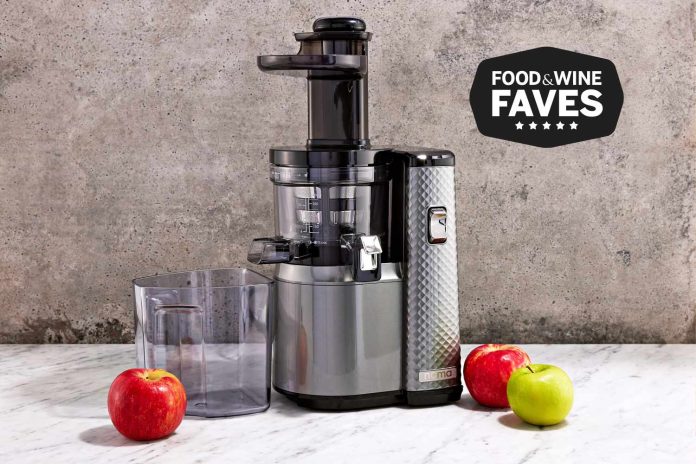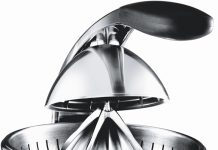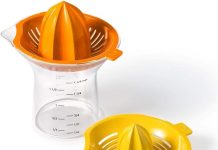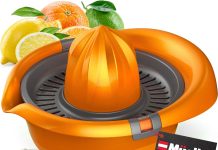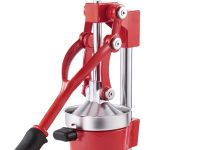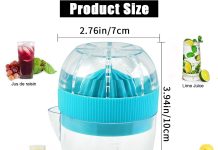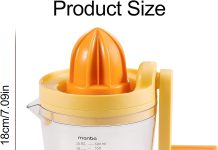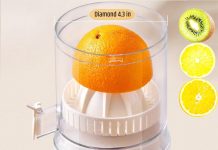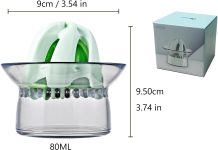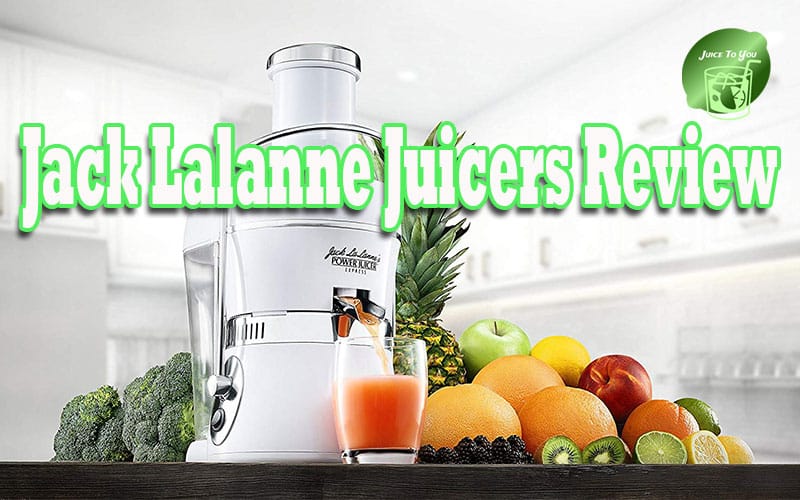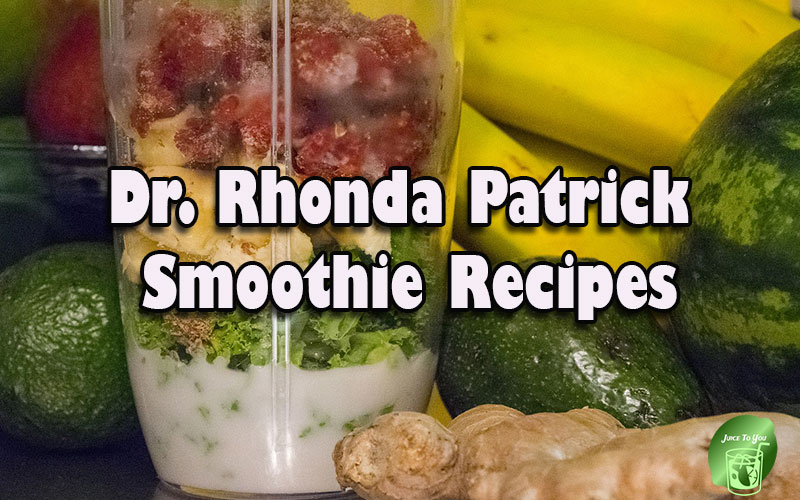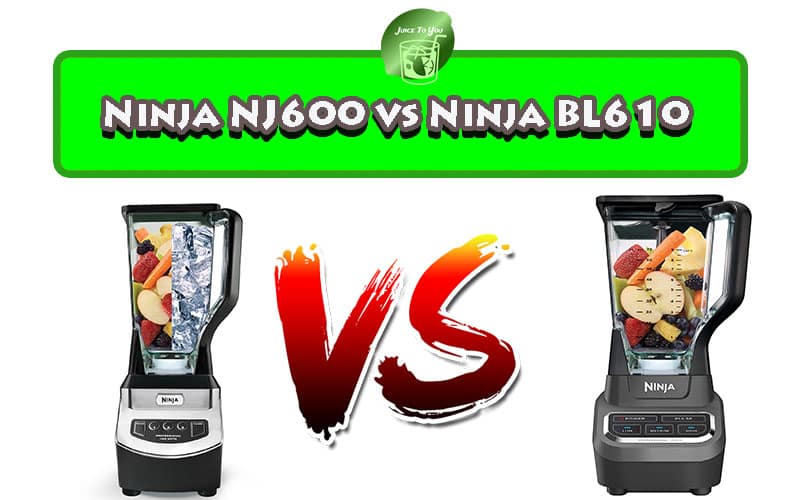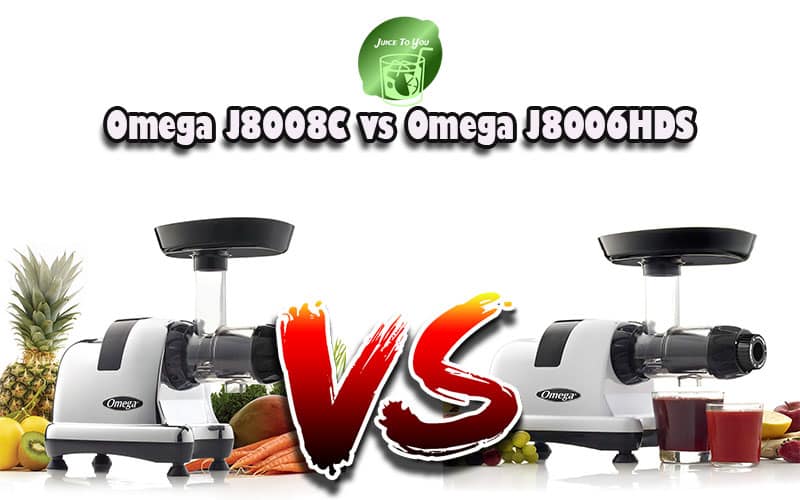Juicers have become a popular kitchen appliance, enticing us with promises of fresh and nutrient-rich juices. But amidst the countless options available, it’s hard not to wonder, “Are juicers worth the investment?” In this article, we’ll explore the benefits and drawbacks of juicers, helping you make an informed decision about whether or not to hop on the juicing bandwagon.
Review contents
Benefits of Juicing
Increased nutrient intake
Juicing allows us to consume a larger quantity of fruits and vegetables in one sitting than we may be able to eat whole. By juicing, we can easily obtain the nutrients from a wide variety of produce, including those that we may not typically include in our diet. This increases our nutrient intake and ensures that we are getting a diverse range of vitamins, minerals, and antioxidants.
Improved digestion
Juicing can have a positive impact on our digestion. When fruits and vegetables are juiced, their fibrous content is broken down, making it easier for our bodies to absorb the nutrients. This can help to alleviate digestive issues such as bloating, gas, and constipation. Juicing can also promote the growth of beneficial gut bacteria, which is essential for a healthy digestive system.
Enhanced hydration
Staying hydrated is crucial for overall health and well-being. With juicing, we can increase our fluid intake while also replenishing essential electrolytes and minerals. Juices are a delicious and refreshing way to stay hydrated, especially during hot summer months or after a strenuous workout.
Boosted immune system
The vitamins, minerals, and antioxidants found in fruits and vegetables are essential for a strong and healthy immune system. Juicing allows us to consume a concentrated dose of these immune-boosting nutrients, helping to ward off illnesses and infections. Regular juicing can strengthen our immune system and improve our body’s ability to fight off diseases.
Weight loss and management
Juicing can be a valuable tool for those looking to lose weight or maintain a healthy weight. By replacing high-calorie snacks and drinks with nutrient-dense juices, we can reduce our calorie intake while still providing our bodies with essential nutrients. Additionally, the high water and fiber content in juices can help us feel fuller for longer, reducing cravings and aiding in weight loss.
Types of Juicers
Centrifugal juicers
Centrifugal juicers are the most common and affordable juicers on the market. They work by using a fast-spinning blade to extract juice from fruits and vegetables. These juicers are great for those who are new to juicing or on a budget, as they are typically more affordable and easy to use. However, they may produce slightly lower-quality juice with less nutrient retention compared to other types of juicers.
Masticating juicers
Masticating juicers, also known as slow or cold-press juicers, operate at a slower speed to extract juice from produce. They use a chewing or crushing action to break down the fibers, resulting in a higher yield of juice with better nutrient retention. These juicers are known for producing high-quality juice with minimal oxidation, making it last longer and preserving its nutrients. Masticating juicers are generally more expensive than centrifugal juicers but offer superior juice quality.
Twin gear (triturating) juicers
Twin gear juicers are the top-of-the-line juicers that utilize two interlocking gears to extract juice. They have the highest juice yield and nutrient retention due to their slow and efficient juicing process. These juicers are ideal for those who are serious about juicing and want the best quality juice. However, they are also the most expensive and may require more time and effort to operate and clean.
Citrus juicers
Citrus juicers are specifically designed to extract juice from citrus fruits such as oranges, lemons, and grapefruits. They come in both manual and electric models, making it easy to enjoy freshly squeezed citrus juice without much effort. Citrus juicers are more affordable and compact compared to other juicer types, making them a convenient choice for those who primarily juice citrus fruits.
Factors to Consider Before Buying a Juicer
Budget
Before purchasing a juicer, it’s essential to consider our budget. Juicers come in a wide price range, from budget-friendly options to high-end models. Determining how much we’re willing to invest in a juicer will help narrow down our options and make a more informed decision.
Frequency of use
How often we plan to use our juicer is another factor to consider. If we’re planning to juice on a daily basis, it may be worth investing in a more durable and efficient juicer. However, if we only plan to juice occasionally, a more budget-friendly option may suffice.
Juicing goals
Our juicing goals should also influence our choice of juicer. If we’re primarily juicing for health benefits and nutrient retention, a masticating or twin gear juicer may be the best option. However, if we’re looking for a quick and convenient juicing experience, a centrifugal juicer may be more suitable.
Noise level
The noise level of juicers can vary significantly depending on the type and model. If noise is a concern, it’s worth considering a masticating or citrus juicer, as they tend to operate more quietly than centrifugal juicers.
Ease of cleaning
Cleaning a juicer can be a tedious task, so it’s important to choose a juicer that is easy to clean. Certain juicers have removable parts that can be quickly rinsed or washed in a dishwasher, while others may require more intricate cleaning. Consider how much time and effort we’re willing to invest in the cleaning process.
Nutrient retention
Different juicers have varying degrees of nutrient retention. If preserving the maximum amount of nutrients is a priority, it’s worth investing in a masticating or twin gear juicer, as their slow juicing process minimizes oxidation and nutrient loss.
Juice quality
The quality of the juice produced by a juicer should also be considered. Some juicers may produce high-quality juice with minimal pulp or foam, while others may result in a more fiber-rich and textured juice. Choose a juicer that aligns with our personal preferences for juice consistency.
Juice yield
The amount of juice extracted by a juicer can vary. Centrifugal juicers are known for their higher juice yield, while masticating and twin gear juicers tend to extract more juice from the same amount of produce. Consider how important juice yield is for our juicing needs.
Versatility
Certain juicers may have additional features and attachments that enhance their versatility. For example, some juicers may be capable of making nut milk, sorbets, or baby food. If these features align with our needs and interests, it may be worth considering a juicer with added versatility.
Durability
We want our juicer to withstand regular use and last for a long time. Consider the build quality and customer reviews of different juicers to ensure that we’re investing in a durable and reliable product.
Cost of Juicing
Initial investment
The cost of juicing includes the initial investment in a juicer. As previously mentioned, juicers can range in price from affordable to expensive, depending on the type and quality. Consider how much we’re willing to spend upfront for a juicer that meets our needs and preferences.
Cost of produce
Another factor to consider when it comes to the cost of juicing is the price of produce. Fresh fruits and vegetables can vary in price, with some being more expensive or less accessible depending on our location and seasonality. We should factor in the cost of produce when budgeting for juicing.
Maintenance and replacement parts
Juicers may require regular maintenance, such as cleaning and occasional replacement of parts. It’s important to consider the cost of these maintenance tasks and any additional expenses that may arise when owning a juicer.
Electricity consumption
Depending on the type and power of a juicer, it may consume a significant amount of electricity to operate. Consider the potential increase in electricity bills when using a juicer regularly.
Health Benefits vs. Convenience
Freshness and nutrient content
One of the major benefits of juicing is the ability to consume fresh, nutrient-dense juice. When juicing at home, we have control over the quality and freshness of the produce, ensuring that we’re getting the maximum amount of nutrients from our juice.
Control over ingredients
By making our own juice, we have complete control over the ingredients that go into our drinks. We can customize our juice to suit our taste preferences and dietary restrictions. Additionally, we can avoid added sugars, preservatives, and artificial ingredients that may be present in pre-made juices.
Added time and effort
Juicing can be time-consuming, especially when considering the preparation and cleaning processes. It’s important to assess whether we have the time and dedication required to incorporate juicing into our daily routine. While juicing can be a labor-intensive task, many people find it to be a worthwhile and rewarding experience.
Clean-up process
Cleaning a juicer after each use can be a chore, as some juicers have several parts that need to be disassembled and washed. However, many juicers now come with dishwasher-safe parts, making the clean-up process more convenient. Balancing the health benefits of juicing with the clean-up process is a personal decision.
Storage and shelf-life
Freshly made juices have a relatively short shelf-life due to oxidation and the absence of preservatives. This means that we need to consume our juice shortly after making it. Consider whether we have the space and means to store fresh juice properly in order to preserve its freshness and nutritional value.
Availability of pre-made juices
While juicing at home offers numerous benefits, pre-made juices can be a convenient option for those with limited time or resources. Pre-made juices are widely available in supermarkets and health food stores, making them easily accessible for those who want to enjoy the benefits of juice without the preparation and clean-up processes.
Juicing for Specific Diets and Health Conditions
Plant-based (vegan/vegetarian) diet
Juicing can be a valuable addition to a plant-based diet, as it allows for the consumption of a diverse range of fruits and vegetables in a convenient and concentrated form. Plant-based diets can sometimes lack certain nutrients, and juicing can help ensure that we’re getting a wide array of vitamins, minerals, and antioxidants.
Detox and cleanse programs
Juicing is often associated with detox and cleanse programs, which aim to rid the body of toxins and promote overall health. While the effectiveness of these programs is disputed in the medical community, juicing can offer a nutrient-rich boost to our overall well-being when incorporated into a balanced and healthy lifestyle.
Digestive disorders
For those with digestive disorders such as irritable bowel syndrome (IBS) or inflammatory bowel disease (IBD), juicing can be a gentler way to consume fruits and vegetables. The juicing process breaks down the fibers, making it easier for the body to digest and absorb nutrients. However, it’s important to consult with a healthcare professional before making any dietary changes for digestive disorders.
Low-calorie and weight loss diets
Juicing can be a helpful tool for those on low-calorie or weight loss diets. By substituting high-calorie foods and sugary drinks with fresh juices, we can reduce our calorie intake while still providing our bodies with essential nutrients. Juices can also help to curb cravings and keep us feeling full for longer, supporting our weight loss goals.
Diabetes management
For individuals with diabetes, juicing can be a way to incorporate fruits and vegetables into their diet while managing blood sugar levels. It’s important to monitor the sugar content of the juices and consult with a healthcare professional or registered dietitian to ensure that the juice intake aligns with their dietary needs and medication regimen.
Alternatives to Juicing
Blending
Blending is an alternative to juicing that retains the entire fruit or vegetable, including the fiber content. Blended drinks, such as smoothies, offer a thicker consistency and a higher fiber content compared to juices. Blending can be a great option for those who prefer a more filling and nutritious beverage.
Smoothies
Smoothies are similar to blended drinks and can be made with a variety of fruits, vegetables, and other ingredients such as yogurt or protein powder. Unlike juices, smoothies retain the fiber from the fruits and vegetables, providing a more filling and satiating option. Smoothies can be a convenient breakfast or snack choice, offering a balance of nutrients and flavors.
Store-bought juices
For those who are unable to invest in a juicer or are short on time, store-bought juices can be a convenient option. However, it’s important to read the labels carefully and choose juices that are low in added sugars and preservatives. Store-bought juices may also lack the freshness and nutrient density of homemade juices.
Consuming whole fruits and vegetables
The simplest and most straightforward way to obtain the nutritional benefits of fruits and vegetables is by consuming them whole. Whole fruits and vegetables provide the fiber content that is lost during the juicing process, promoting better digestion and satiety. It’s important to incorporate a variety of fruits and vegetables into our diet and chew them thoroughly to maximize nutrient absorption.
Long-Term Return on Investment
Savings on store-bought juices
Investing in a juicer can lead to long-term savings on store-bought juices. Pre-made juices can be quite expensive, especially those labeled as cold-pressed or organic. By juicing at home, we can significantly reduce our weekly grocery bill and still enjoy the benefits of fresh juices.
Health cost savings
Maintaining a healthy lifestyle through juicing can potentially lead to savings on healthcare costs in the long run. By regularly consuming nutrient-dense fresh juices, we can support our immune system and overall well-being, reducing the risk of chronic diseases and medical expenses.
Prevention of food waste
Juicing can be a great way to use up fruits and vegetables that are slightly past their prime or have imperfections. Instead of letting these items go to waste, we can juice them, maximizing their nutritional value and minimizing food waste.
Sustainable lifestyle choice
Choosing to juice at home promotes sustainability by reducing packaging waste associated with store-bought juices. By investing in a juicer and using fresh produce, we can contribute to a more environmentally friendly lifestyle.
Factors Affecting Juicer Performance and Satisfaction
Build quality and design
The build quality and design of a juicer can greatly impact its performance and overall satisfaction. Look for a juicer that is well-built with durable materials to ensure it withstands regular use. Consider the design and ease of operation, including the size, feeding chute width, and pulp ejection system.
Noise level
Some juicers can be quite noisy, while others operate more quietly. If noise is a concern for us, prioritize juicers with quieter motors or opt for masticating or citrus juicers, as they tend to produce less noise.
Ease of use
Choose a juicer that is easy to use and operate. Consider the assembly and disassembly process, the controls and settings, and the overall user experience. A juicer that is simple to use will encourage us to incorporate juicing into our daily routine.
Cleaning process
The cleaning process of a juicer can vary significantly depending on the type and model. Look for juicers with removable parts that are dishwasher-safe or easy to clean by hand. Juicers with complex cleaning processes may discourage us from using them regularly.
Juice yield and quality
Consider the juice yield and quality produced by different juicers. While juicers with higher juice yield are generally more desirable, the overall quality of the juice produced, including taste, texture, and nutrient retention, should also be considered.
Versatility of juicer
Certain juicers offer added versatility, allowing us to make nut milk, sorbets, or baby food in addition to juices. If we’re interested in exploring a variety of recipes and functions, consider a juicer with additional attachments or capabilities.
Experience and juicing techniques
The experience level and individual juicing techniques can greatly impact the overall performance and satisfaction of a juicer. As we become more experienced with juicing, we may develop preferred techniques and require more advanced features in a juicer.
Reviews and recommendations
Reading reviews and seeking recommendations from other juicer owners can provide valuable insights into the performance and satisfaction of different juicers. Consider both expert and user reviews to make a well-informed decision.
Conclusion
Juicers can be a worthwhile investment for those who are interested in incorporating more fruits and vegetables into their diet and reaping the associated health benefits. By carefully considering our budget, juicing goals, and lifestyle preferences, we can choose a juicer that suits our needs and enhances our overall juicing experience. Whether we prioritize nutrient intake, time efficiency, convenience, or sustainability, there is a juicer available that can help us achieve our health and wellness goals. So, choose a juicer that fits our requirements, embrace the juicing experience, and enjoy the delicious and nutritious rewards of fresh homemade juice.

